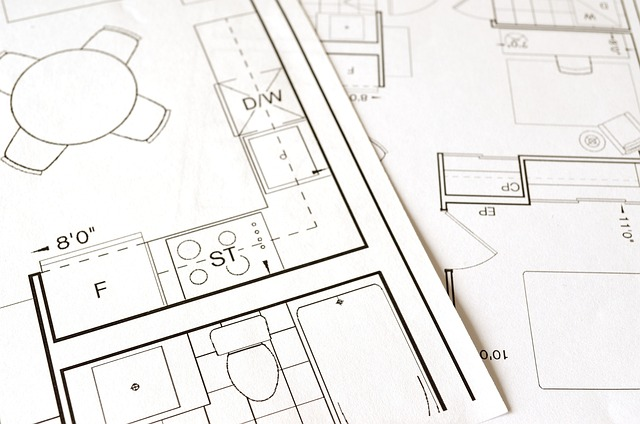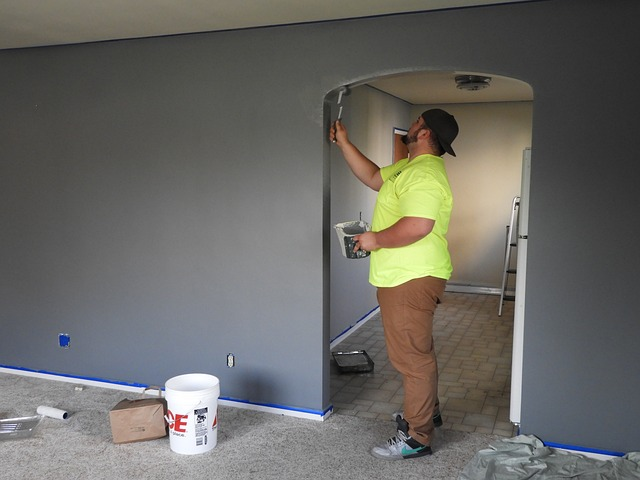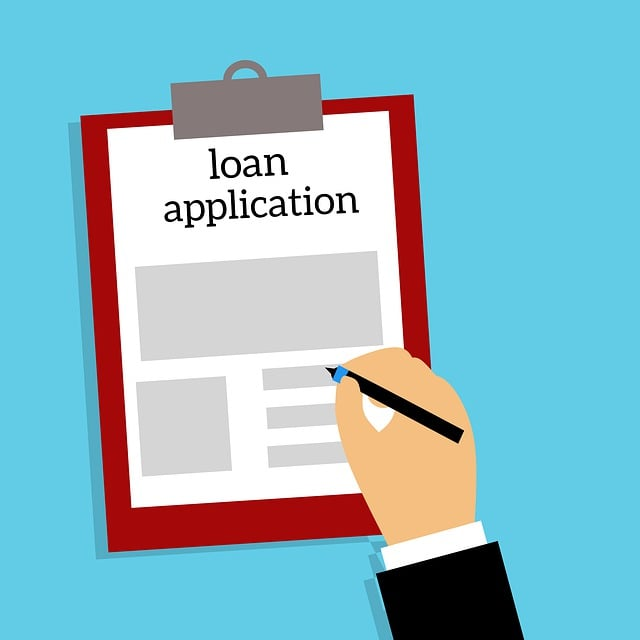What is a Rehab Loan?
A rehab loan is a financing product for investors to renovate properties. It’s also called a renovation loan. Instead of getting a mortgage and a separate home renovation loan, rehab loans fund both in a single financing product.
These loans provide quick access to funds, enabling investors to cover expenses like mortgage payments during renovations. Investors can secure these loans within a few days, expediting the renovation process.
Real estate investors can use these loans to renovate rental properties or flipping houses for profit. They often increase the property’s value, increasing investors’ returns.
How do Rehab Loans for Investors work?
Here is the typical process for a real estate investor using a rehab loan program:
- Find a lender where you qualify (meeting minimum requirements for credit score, income, etc.).
- Acquire homeowner’s insurance.
- Get a contractor and detailed, written estimates on renovations.
- Send estimates to the lender for approval.
- If approved, the funds go into an escrow account for renovation costs.
- Complete repairs and get any necessary permits and inspections.
- The funds get released to pay the contractor upon completion.
- Pay your rehab loan off like a regular mortgage.
What types of Rehab Loans are available for Investors?
There are several options for investor loans.
Investment Property Line of Credit
An investment property line of credit can be valuable for real estate investors looking to fund their projects. It allows investors to borrow against the equity in their investment properties, giving them access to funds that can be used for renovations, repairs, or even purchasing additional properties. It’s similar to a Home Equity Line of Credit (HELOC), which homeowners often use for renovations by leveraging the property’s equity.
One of the key benefits of an investment property line of credit is that it provides flexibility, allowing investors to draw on the funds as needed and only pay interest on the amount borrowed. This can be especially useful for investors who may need quick access to capital for time-sensitive opportunities in the real estate market.
Using an investment property line of credit can help investors leverage their existing properties to grow their portfolios and increase their overall returns. It’s essential for investors to carefully consider the terms and conditions of the line of credit, as well as their own financial situation and investment goals, before utilizing this financial tool.
FHA 203(k) Loans
Permanent Rehab Federal Housing Administration (FHA) 203(k) Loans are a popular option for individuals looking to purchase a home that needs significant repairs or renovations. These loans allow borrowers to finance both the home’s purchase price and the renovation costs in one loan, making it easier to fund the entire project.
FHA 203(k) loans are available for both primary residences and investment properties, providing flexibility for investors looking to rehab properties for rental or resale purposes. Primary residents can use these loans to pay off an existing mortgage, renovate, and refinance the property.
A primary benefit of FHA 203(k) loans is that they offer relatively low down payment requirements, making them accessible to many borrowers. Additionally, these loans typically have competitive interest rates compared to other home improvement loans, helping borrowers save money over the life of the loan. The FHA 203(k) program also has specific guidelines for the types of renovations that can be financed, ensuring that the property meets certain standards once the work is completed.
Hard Money Rehab Loan
Hard money rehab loans are a type of financing real estate investors typically use to purchase and renovate properties. These loans are secured by the property itself rather than the borrower’s creditworthiness.
Hard money lenders are often private individuals or companies willing to take on higher risk in exchange for potentially higher returns. The terms of hard money loans are usually shorter than traditional mortgages, with higher interest rates and fees.
This type of financing can be helpful for investors who need quick access to capital to fund their rehab projects. However, it is essential to carefully consider the terms and costs associated with hard money loans before moving forward with this type of financing.
Short-Term Bridge Loans
Short-term bridge loans, also known as fix and flip loans, are a popular option for property investors looking to renovate a property quickly. These loans provide investors with the necessary funds to purchase a property, complete renovations, and then sell it for a profit within a short period.
One key benefit of short-term bridge loans is their flexibility. These loans are typically easier to qualify for than traditional bank loans, making them ideal for investors who may not meet strict lending criteria. Additionally, bridge loans can be approved and funded quickly, allowing investors to move forward with their renovation projects without delay.
Another advantage of short-term bridge loans is that they are specifically designed for property investors. Lenders understand the unique needs of investors looking to renovate and sell properties quickly, so they offer loan terms tailored to these needs. This can include flexible repayment schedules, interest-only payments, and higher loan-to-value ratios.
What can Investors do with a Rehab Loan?
Depending on the type of loan you get, property investors can use the funds to make various repairs or renovations, which help get the property ready to sell or rent. Here are some examples of the renovations you make:
- Remodeling kitchens and bathrooms.
- Replacing major appliances (fridges, dishwashers, etc.).
- Repairing or upgrading heating and cooling systems.
- Updating materials for greater energy efficiency.
- Modifying structures.
- Septic system improvements and connecting to public water/sewer.
- Replacing roofing, gutters, drainage, floors, or carpet.
- ADA modifications.
- Large landscaping projects.
What are the qualifications for a Rehab Loan?
The qualifications largely depend on the type of loan. Most mortgage lenders look at your income and credit score, but others may not. For example, a hard money lender might not even look at your credit score, but you’ll need a significant down payment and real property to pledge as collateral.
Qualifications for a FHA 203(k) loan are:
- Minimum credit score of 500 & 10% down payment or 580 and 3.5% down payment.
- Proof of steady income and employment.
- The borrower must work with an approved FHA 203(k) lender.
- Property must meet FHA minimum property standards.
Most other rehab loans require a good to excellent credit score or a strong portfolio of investment properties to use as collateral. A successful track record of renovating and selling or renting properties can also help with approval.
The best way to determine eligibility is to contact lenders directly and discuss the qualifications. You may need to shop around before finding a lender that works for you.
How do I apply for a Rehab Loan?
Follow these steps to apply for and use a rehab loan.
- Research lenders: Start by researching lenders who offer rehab loans. Look for reputable financial institutions or specialized lenders with experience providing these loans.
- Gather necessary documents: Before applying for a rehab loan, gather all the essential documents, such as proof of income, credit history, employment information, and details about the property you plan to renovate.
- Determine loan amount: Calculate the estimated cost of your rehabilitation project to determine how much you need to borrow. Make sure to factor in the renovation costs and any fees associated with the loan.
- Submit an application: Once you have selected a lender and gathered all the required documents, submit your loan application. Be prepared to provide detailed information about your project, financial situation, and the property you plan to renovate.
- Wait for approval: After submitting your application, the lender will review your information, determine if you qualify, and start underwriting. This process may take some time, so be patient while waiting for a decision.
- Close on the loan: After receiving approval, you can close on the loan. This involves signing the necessary paperwork and paying any closing costs associated with the loan. Typically, the funds go into an escrow account to fund renovations.
- Start your renovation project: Once the loan is closed, you can start your renovation project. Stick to your budget and timeline to ensure a successful rehabilitation project.
What are the benefits and drawbacks of a Rehab Loan?
Investors benefit from rehab loans by quickly accessing the funds needed for renovations. This advantage allows them to start working on their investment properties without delays. With traditional loans, the approval process can be lengthy, causing investors to miss out on valuable time.
One drawback of rehab loans is that they often come with higher interest rates than conventional loans. While these loans provide the necessary capital for renovations, investors must consider the long-term financial implications of paying back a loan with increased interest.
Rehab Loans Pros & Cons
Pros:
- Allows investors to purchase properties that need renovation at a lower cost.
- Can increase the value of the property, leading to higher potential profits.
- Provides financing for purchasing and renovating a property in one loan.
- Offers flexibility in terms of property types that can be financed.
Cons:
- Higher interest rates compared to traditional mortgages.
- Requires a higher level of documentation and approval process.
- Limited availability from traditional lenders.
- Risk of unforeseen renovation costs exceeding the original budget.
Frequently Asked Questions
Here are the most common questions about rehab loans for investors.
How much do Rehab Loans cost?
Rehab loans can vary in cost for investors, depending on several factors, such as the lender, the loan amount, the scope of the renovation project, and the investor’s financial profile. Generally, rehab loans may have higher interest rates and fees than conventional mortgage loans due to the increased risk of financing a property that needs significant repairs or improvements.
Investors should expect to pay origination fees, closing costs, and potentially higher interest rates on rehab loans. It’s essential for investors to carefully review and compare loan terms from different lenders to ensure they are getting the best deal possible for their rehab project. Additionally, investors should factor in the costs of the renovations themselves when budgeting for a rehab loan to ensure they have enough funds to complete the project successfully.
Most commonly, these loans include interest rates ranging from 7% to 18%, origination fees around 1% to 3% of the loan amount, closing costs like appraisals and inspections, plus potential prepayment penalties or late fees.
How long does it take to get a Rehab Loan?
The time it takes to close on a rehab loan largely depends on the type of loan and lender. Hard money loans and fix and flip loans typically have much faster funding times.
You can potentially close and fund a hard money loan in just a few business days. Short-term bridge loans typically have a funding time of 3-10 business days.
Investment property lines of credit can also close quickly, potentially in a few business days. However, that largely depends on the lender and your qualifications and documentation.
FHA 203(k) loans have a much longer closing time, often more than 60 days. Ensure you determine closing times and factor them into your renovation timeline.
Can I use Business Loans to Rehab an Investment Property?
Using a business loan for an investment property rehab might be possible, but there are challenges. You’ll typically need a registered business that flips or renovates homes and has been operating for several years. That means you’ll likely need to be established as a legal business entity (sole proprietor, general partnership, LLC, or corporation) with a business credit history.
That being said, you might be interested in one of the of the following small business loans:
- Bad credit business loan.
- Business line of credit.
- Business loans for women.
- Business term loans.
- Equipment financing.
- Invoice factoring.
- Merchant cash advance.
- Revenue-based loan.
- SBA loans.
- Working capital loans.
- ERC advance.
Rehab Loans for Investors – Final Thoughts
Rehab loans offer real estate investors a valuable tool for financing property renovations and increasing potential profits. These loans provide flexibility, access to funds, and the ability to leverage investments effectively.
By understanding the benefits and risks associated with rehab loans, investors can make informed decisions to maximize their returns on investment. Ultimately, rehab loans can be a strategic financial tool for investors looking to grow their real estate portfolios and achieve success in the market.
Contact us if you have more questions about rehab loans or to apply for a small business loan. Our alternative funding experts can help you find the best financing options for your business or commercial real estate needs.




















